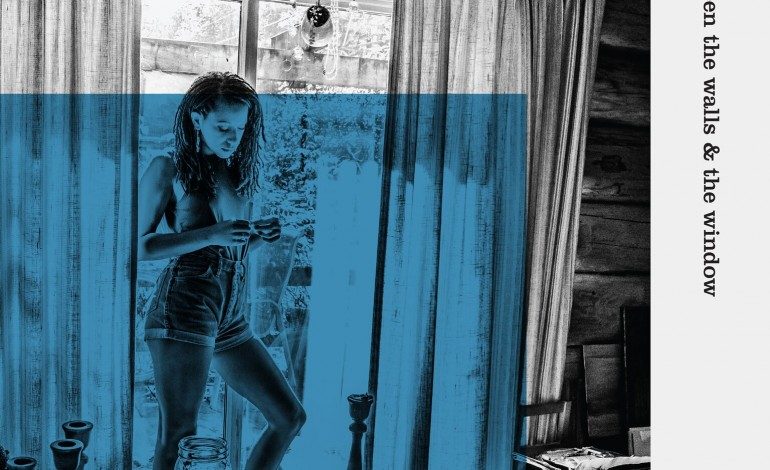

Dorval Darkly Examines the World
What lies between the walls and the window? The title of Ché Aimee Dorval’s third solo effort provokes some thought: Does she suggest entrapment or confinement? An ability to only regard the outer world through a screen? Is her exile self-imposed, or is it exile at all?
While conclusive answers are expectedly hard to find, the music comes close with its restlessness and tangible unease. Dorval is as worthy of the possibly oxymoronic designation of neo-folk as anyone, suffusing her songs with an aural and lyrical ennui that feels simultaneously contemporary and timeless.
Still, the music here is difficult to categorize. It is spacious, ambiguous, echoing, filled with drama, at once vibrant in the breathing room its maker affords it and steady, ponderous, slow, as if it is being pulled towards both life and death. The vibe is best captured in the unsteady “Art of Dying:” “I eat to keep the words from forming / I fuck to keep the thoughts at bay / I breathe because I’ve not yet learned the art of dying,” she sings over a spare, mysterious electric guitar figure. Dorval’s evocative vocals occupy the same space, conveying a composed power that sends her rhymes and the feelings that they cannot capture straight home. The impassioned, wordless yowls she summons at the end of “Buried” give chills.
Her lyrics offer stately, poetic studies of pain, weariness and wariness and are at times cryptic and at others obvious. “Oh that’s how it is / Played to the chest, close going, plead the fifth / Were the lips to form the truth of it / Erupt the Quietus,” she sings on “Erupt the Quietus.” You don’t need to know what the hell it means to erupt the quietus to be on board with it after hearing her commanding delivery. On “I Should Have Worried,” she sings, “Were the fibs to fail / You didn’t worry / You’ll fix it in post / And they’ll never know / Talking in circles / So tight the light can’t even get in.” Lines like these balance Dorval’s inward and outward looking tendencies, as she often uses introspection, intimacy and, seemingly, personal experience to comment on the world at large. And you can’t blame her for having a pessimistic view these days. When a song makes a rare venture into a major key, it never lasts. How literally you choose to read that quality is up to you.
Between the Walls and the Window proves an altogether eerie, unsettling place to visit and one you may be reluctant to return to. The album doesn’t fluctuate in its mood and its notably lacking anything resembling a hook — only a few individual songs distinguish themselves from the murk. Still, “monotonous” doesn’t quite describe it. Unsparing is more suitable. You may not know what lies in the space described by the album’s title, but Dorval tells you what it feels like to be there.
